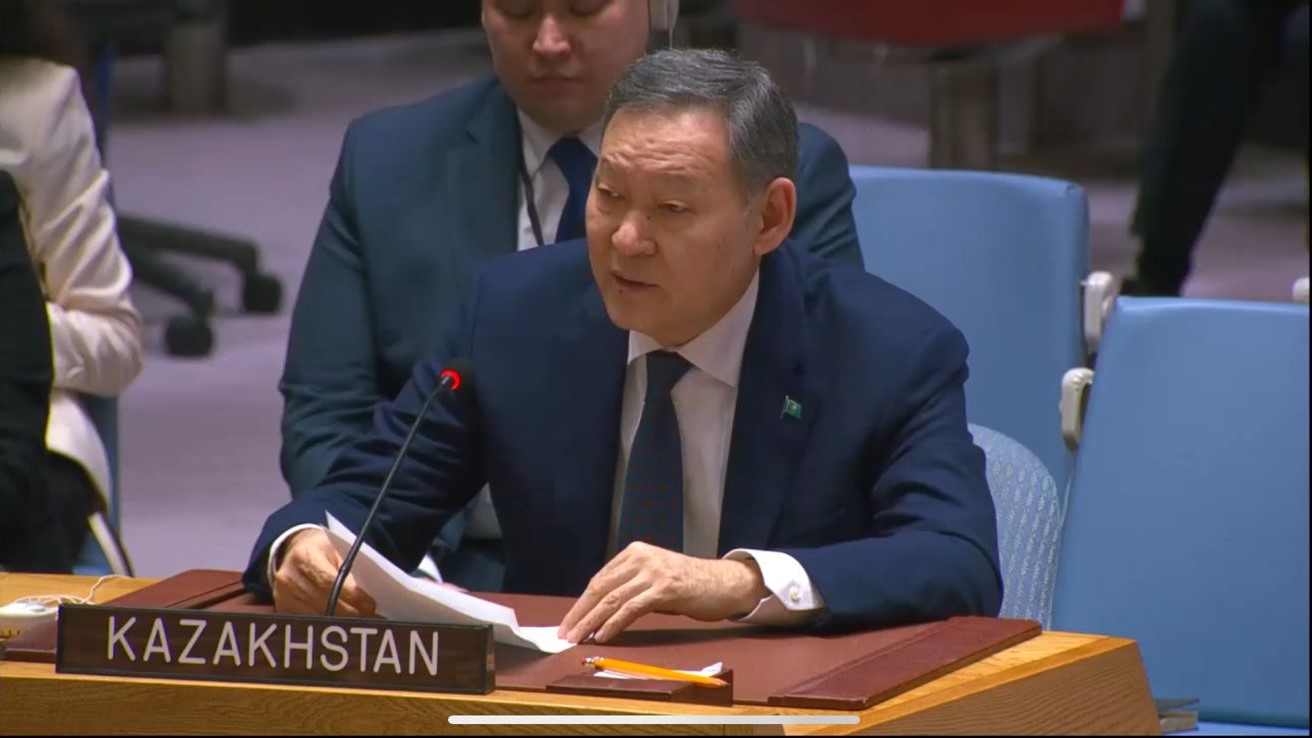Kazakhstan welcomes signing of ceasefire agreement between Israel and HAMAS

New York, January 20, 2025 – The quarterly open debate of the Security Council on the situation in the Middle East and efforts to resolve the crisis in the region took place at the UN headquarters. The event featured 69 speakers, including UN Secretary-General António Guterres and ministers and vice-ministers of foreign affairs from countries such as Indonesia, Colombia, Maldives, Namibia, Palestine, and others. Additionally, Permanent Representatives from various member states of the Organization were present. Kairat Umarov, the Permanent Representative of the Republic of Kazakhstan to the UN, spoke on behalf of Kazakhstan during the debate.
Participants discussed the impact of the 15-month conflict in Gaza and the signing of a ceasefire agreement between Israel and HAMAS. They also covered political changes in Lebanon and Syria. The main focus of the meeting was on strengthening stability and peace in the region.
In his speech, Ambassador Umarov emphasized Kazakhstan’s support for the ceasefire agreement, which aims to stop the violence, release hostages, and increase humanitarian aid to the Gaza Strip. «We sincerely hope that this agreement will serve as the foundation for further steps toward a long-term resolution of the conflict», – he stated.
The diplomat emphasized that Kazakhstan consistently supports a resolution to the Palestinian-Israeli conflict based on the principle of «two states for two peoples». This approach advocates for the establishment of two independent states, allowing Palestinians and Israelis to live together in peace and security.
Reaffirming Kazakhstan’s commitment to the principles of international law and multilateralism, the Kazakh diplomat expressed support for the work of the United Nations Relief and Works Agency for Palestine Refugees in the Near East, which plays a key role in providing humanitarian aid to the residents of Gaza. «We also welcome the ceasefire agreement between Israel and Lebanon, which was reached in November 2024», – K. Umarov said.
The diplomats highlighted the necessity for the international community to utilize all available mechanisms to improve the lives of people in the Middle East, who are in urgent need of support. During discussions about the ongoing risks of destabilization in the region, the participants reached a consensus on the importance of coordinated efforts by the international community.
The meeting stressed the significance of international cooperation in addressing the humanitarian and political challenges facing the region, reaffirming that collaborative efforts are the only viable path to achieving long-term peace.